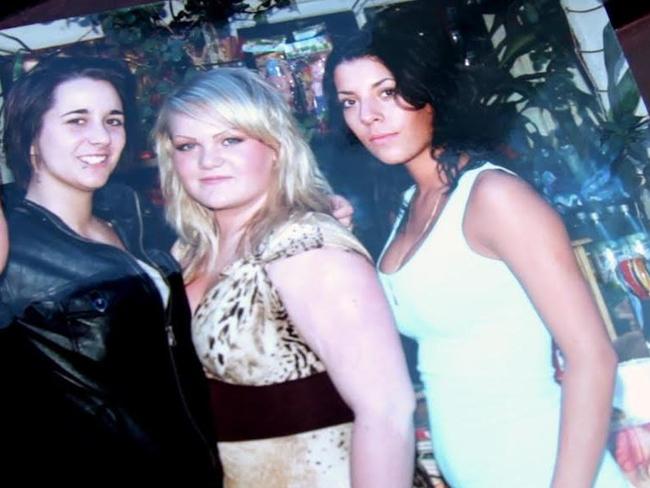Why is one young woman in jail for smuggling cocaine while her friends walk free?
WHY is this girl, caught smuggling cocaine with her friends, stuck in jail while the other two are home free? Their case shines light on a shocking injustice.
New Movies
Don't miss out on the headlines from New Movies. Followed categories will be added to My News.
IT was May 19 2008 when three Norwegian girls were caught with 22.5kg of cocaine in their bags trying to fly home after a two-week holiday in Bolivia.
The girls, Stina Brendemo and Christina Øygarden, who were lovers, were caught with their friend Madelaine Rodriguez and her then two-year-old daughter, who was also Stina’s niece.
All three were detained in San Sebastian women’s prison in Cochabamba. It wasn’t long before the Norwegian media descended and quickly painted Madelaine — who was born and raised in Norway but had Uruguayan heritage — as the villain, dubbing her the ‘Latin trafficker’.

Christina and Stina claim innocence and blame Madelaine who maintains all three knew what they were doing.
Christina’s family was able to post bail for the then 18-year-old and she escaped Bolivia and fled home to Norway on a false passport.
After her escape, the bail for the two remaining girls was raised and neither could afford it.
Stina, then 17, and Madelaine, then 20, were both sentenced to 13 years and four months in jail which was later reduced to 10 years and eight months.

Madelaine had another two children while in jail to her now fiance, aBolivian man named Brian,while Stina also gave birth to a child.
There was huge media interest in the birth of Stina’s child and the men’s magazine Alpha covered it extensively, paying for the exclusive rights to the story.
In a bold and shocking move, the magazine then financed an escape plan, which included paying her $60,000 bail, sending mercenaries to Bolivia, chartering private planes, boats and illegal border crossings.

Although she remains on Interpol’s list of wanted international criminals, Stina enjoys relative refuge in Norway, where she can’t be charged again for her crime and will not be extradited.
Christina, meanwhile, was tried at home in Norway, but was found innocent.
The duo’s escape means Madelaine is now the only member of the convicted trio left in jail, paying for the crime alone, while the European media that was once ravenous for the story appears to have forgotten all about her.
This is where award-winning Australian film maker Violeta Ayala enters the story.
“I just found it a little bit strange. I felt like ‘Why were they blaming just one of the girls?’ ” Ayala told News Corp Australia.

“We weren’t planning on doing a film about these girls but we were just in the right place at the right time.”
Along with her husband and producer Dan Fallshaw, Ayala has made a film about the events, The Bolivian Case.
The film shows how the Norwegian media was sympathetic to the freed women.
“Rather than asking the audience to question the guilt or innocent of the women, The Bolivian Case, aims to challenge and confront viewers on how gender, race and class affects how society assigns guilt.
“The outcome of the case was based on perception not on evidence. As a result of this failure, we believe the media and the justice system should be on trial.”

Ayala and Fallshaw drew global acclaim for the controversial documentary Stolen that premiered at the Sydney Film Festival in 2009. She hopes the new film will draw attention to the way the media reports on such cases and the responsibility that comes with power.
“The story [about the girls] was massive and the girls were all over the magazines but now they don’t care about Madelaine,” she said.
The Bolivian Case will screen at the Sydney Film Festival on Sunday June 7 as part of the Australian Documentary Competition for the Documentary Australia Foundation Award.
Originally published as Why is one young woman in jail for smuggling cocaine while her friends walk free?






